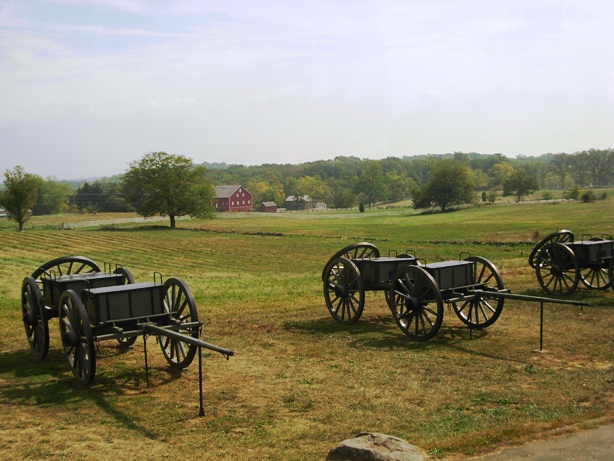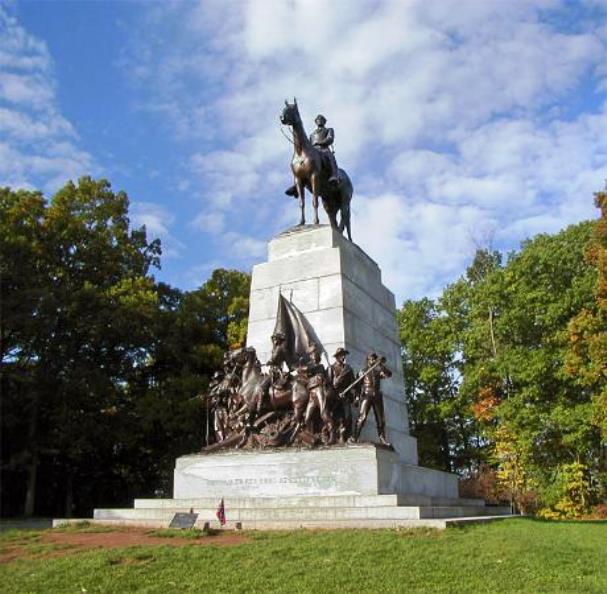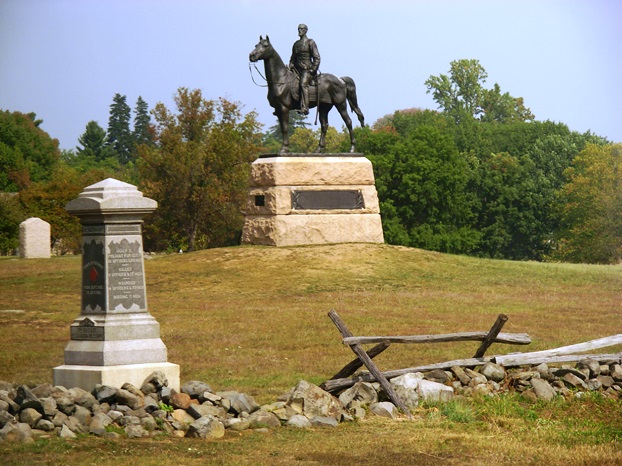If there is a home for the soul of America, it is almost certainly on the battlefields of Gettysburg. Here, in July 1863, the Union and Confederate armies clashed in the bloodiest battle ever fought on American soil. In three days of fighting, more than 51,000 men were killed, wounded, captured or went missing (nearly a third of all those who fought here); when all was said and done, the once unstoppable Confederate army was forced to retreat. Though the Civil War dragged on for nearly two more years, Gettysburg was the turning point. Never again would the South mount a major offensive into the North.

Though the Civil War dragged on for nearly two more years, Gettysburg was the turning point. Never again would the South mount a major offensive into the North.
Four months after the battle, Abraham Lincoln read the brief words of his Gettysburg Address at the dedication of the battlefield’s National Cemetery, where 3,555 soldiers were interred. Today, the battlefield’s 6,000-acre grounds are protected as a national park, with more than 1,400 statues, monuments and cannons marking 26 miles of avenues that wend past the battlefield’s most legendary sites, including Robert E. Lee’s temporary headquarters, Cemetery Hill, and the field on which General George Pickett and 12,000 Southern infantrymen made their doomed charge against the Union lines, sustaining more than 5,000 casualties in 50 minutes.

Gettysburg Civil War Heritage Days take place during the week surrounding July Fourth. There are concerts, lectures and tours given by park rangers and prominent Civil War scholars, living history encampments, even a Civil War-period wedding, but skirmishes re-enacted near the park by volunteers dressed in Confederate grey and Union blue are the highlight. Take some quiet time to recall these words of Col. Joshua Lawrence Chamberlain, whose 20th Maine volunteers held the Union’s left flank at Little Round Top, helping to turn the tide of the battle and the war. In 1889, at the dedication of the monument to his troops, he said: “In great deeds something abides.

On great fields something stays. Forms change and pass; bodies disappear, but spirits linger, to consecrate ground for the vision-place of souls … Generations that know us not and that we know not of, heart-drawn to see where and by whom great things were suffered and done for them, shall come to this deathless field to ponder and dream.”
Visit the Gettysburgh National Memorial website
